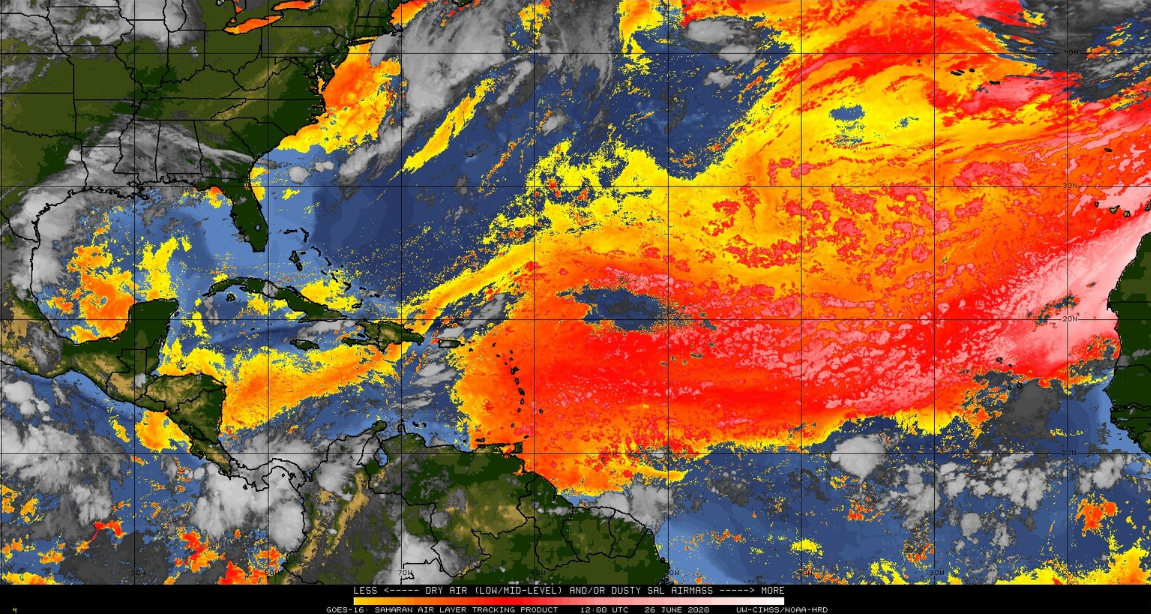Saharan Dust Plume Hits US: Washington Post
Saharan Dust Plume Hits US: Washington Post
Read the article from the Washington Post about a large dust storm moving from Africa to the United. States.
Andrew Freedman is an editor for the Washington Post, focusing on extreme weather, climate change, science and the environment. Matthew Cappucci is a meteorologist with the Capital Weather Gang. Jason Samenow is an editor and writer who covers weather and climate.
Also read about the dust cloud from AccuWeather: “The cloud is part of what's known as the Saharan Air Layer (SAL), which usually occupies a 2- to- 2.5-mile-thick layer of the atmosphere, with a base starting about 1 mile above the surface, according to the National Oceanic and Atmospheric Administration.”
Read about mitigating the effects of dust storms from EcoMENA.
